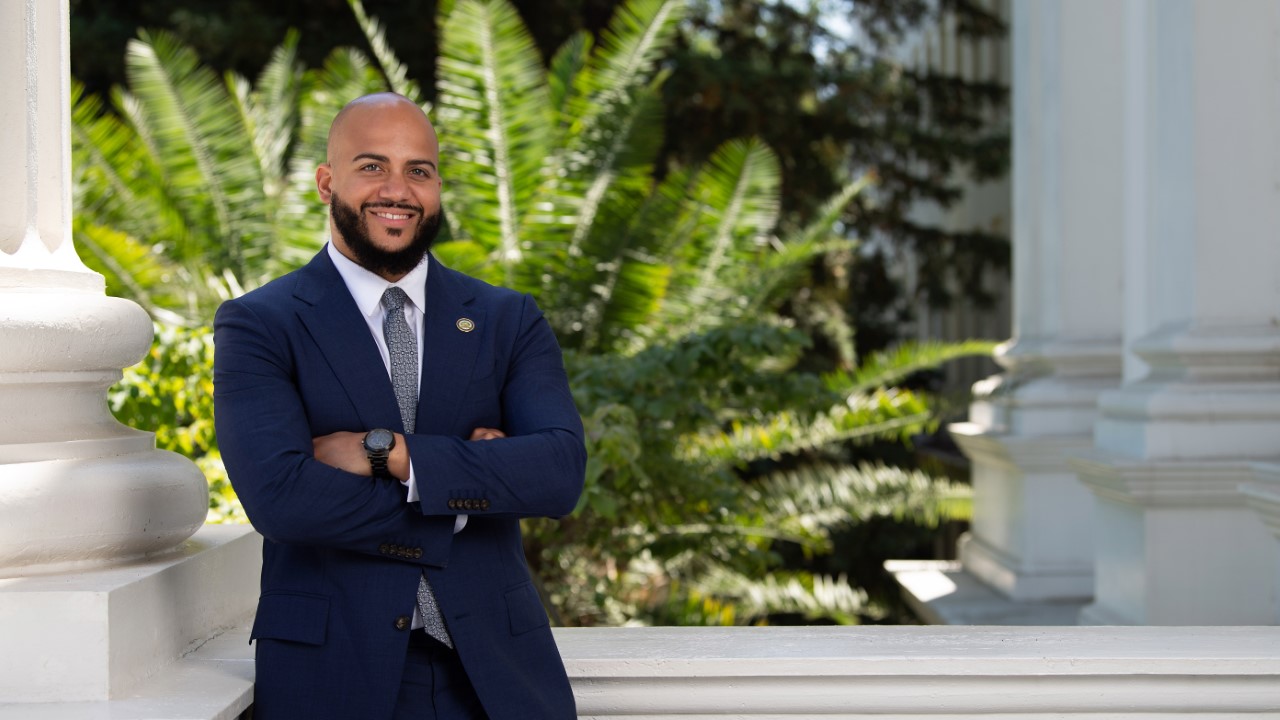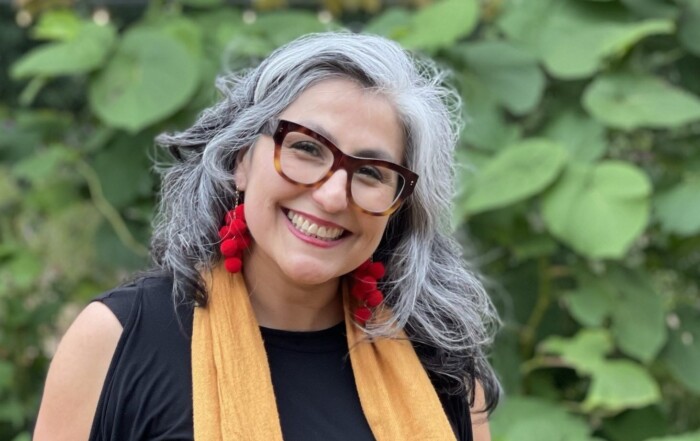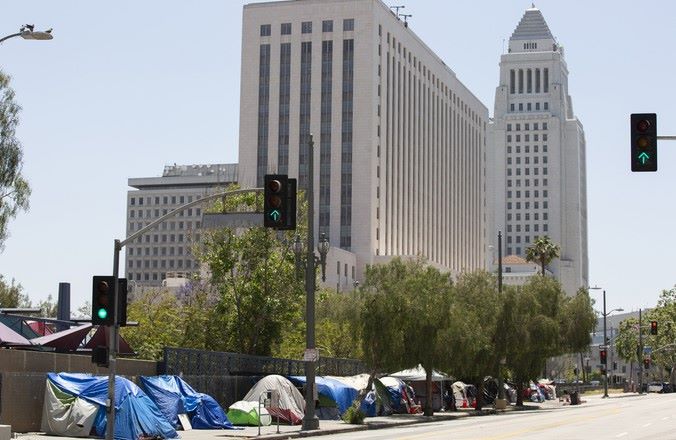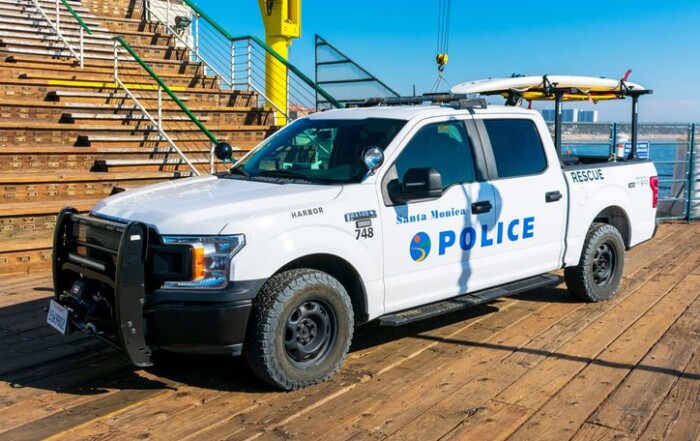On Friday, I sat down with Assemblymember Isaac Bryan, who was first elected in May of 2021 in a Special Election to represent what was then the 54th State Assembly District. Now re-elected in November of last year to represent the newly drawn 55th Assembly District, Bryan’s constituents include the residents of Baldwin Hills, Century City, Culver City, Leimert Park, Mar Vista, Palms, Pico-Robertson, West Adams, and Windsor Hills.
Bryan is one of only three renters out of 120 legislators in Sacramento.
Todd Flora, Publisher, Westside Voice (TF): Assemblymember Bryan, thank you for taking the time today to answer some questions I know will be of interest to our readers. I want to start off just with how it felt to take the oath and your first full day in office. Can you describe the feeling?
Assemblymember Isaac Bryan (IB): It was incredible, actually. Because when I was first sworn in, it was during a Special Election, and so I had actually never been in the Capitol for the big, new class swearing-in. The governor is here, the constitutional officers are here; we adopt the rules of the chamber, we vote on a Speaker – all of that was brand new for me. So, I was incredibly excited – I had my fiancé Mara with me and my little brother. It was just a great day.
TF: In your brief time in the Assembly, what have you learned that you didn’t expect? What has surprised you, disappointed you, or perhaps unexpectedly pleased you?
IB: What I learned that I didn’t expect is how volatile state resources can be. You can have years where you’re up a $100 Billion dollars surplus and a subsequent year where you are down $20-30 Billion in a deficit. So that kind of swing in revenue, in relief from the Federal government, and expectations on taxpayers I think provides a level of instability when it comes to setting long-term or permanent priorities, as opposed to one-time investments or singular historic changes for a single fiscal year. So that was something I didn’t quite expect. So [I’m] going to be looking at how we can better stabilize our expectations as a state and make sure our budget – which, even in a down year, is still nearly $300 Billion dollars, we’re the fourth largest economy in the world –
TF: Are we fourth now?! Wow!
IB: We are fourth. I believe we’ve passed Germany. So, I think there’s still a lot of potential and a lot of good that we can, should, and will do. But that kind of volatility of resources is something that caught me off guard.
One of the things that I’ve been pleasantly surprised by is just the comradery among colleagues. You know – never underestimate how much you can get done just by being liked and respected, and appreciated. I’ve got colleagues that come from vastly different parts of California – rural counties, conservative counties, conservative areas who, if you can craft your bill package or your policy priorities in such a way it also speaks to their constituents, you’d be surprised who shows up in support of a piece of legislation. And so, that kind of mindfulness is something we keep front of focus in our office but also something I was surprised by. It’s not nearly as hostile as the Federal government, even across the aisle.
TF: You’ve now been re-elected for the first time. I’m really interested in getting to your legislative priorities, so tell me, what will your committee assignments be in the new term, and how will they guide your legislative priorities?
IB: I’m keeping the same committee assignments as last year. So I’ll still be chairing the Elections Committee. I sit on the Appropriations Committee, Governmental Organization, Public Safety, Human Services. I plan on reauthorizing the Select Committee on Poverty and Economic Inclusion. I’m also a member of a variety of different caucuses. But I think my policy priorities are centered on the needs of my district, and, on a more macro level, what I believe are the needs of California at this time.
I wish there was a single policy issue, or a single committee, where I could improve the conditions of life in the 55th Assembly District. But I think we’re hit with a constellation of civic failures that I think we have a role in alleviating.
TF: Can you talk a little bit about what those are?
IB: Yeah. We have parts of our district where the schools have been impacted by the pandemic in such a way that absenteeism is at an all-time high. Resource allocation, because of absenteeism, has been impacted. We have disproportionate access to broadband across our district, where more affluent communities have higher connectivity and faster speeds than other parts of the district even though that became a clear need following the pandemic. We’ve got parts of our community that are still food deserts and don’t have the kind of healthy food infrastructure. We’ve got mobility problems across the district, where we’ve built walkable communities in like Culver City but we still have infrastructure for cars only and don’t allow for that kind of livability. We’ve got the largest urban oil field anywhere in the country, and although last year we passed a bill that would prevent any new oil drilling within 3,200 feet of communities – which is historic – and will have a direct impact on the people who live in the 55th Assembly District, we still have the current oil wells pumping right there next to Kenneth Hahn Park. We’ve got communities that have the highest rent burden share, the lowest homeownership rates, the highest unemployment rates, also have the highest police presence, right?
So, we’ve got this kind of constellation of things impacting us, and, because of that, our bill package is going to seek to touch on all of those things. We’re going to try to alleviate poverty and spark economic opportunity when we can. We’re going to have things relative to criminal justice reform. We’re going to try and expand democracy and make sure voting reform is easier and participatory and there is culturally competent outreach around election time to communities that historically have had low turnout because they don’t believe their government is working for them feel like they can participate and have a voice in the process. We’re going to do some environmental justice work. We’re going to dabble in education and equity and close some achievement gaps. It’s going to be an ambitious year for us. We’re also going to be looking out for mom-and-pop land owners and property owners who have been impacted by the pandemic by folks who have been unable to pay their rent. But we’re also going to look at the needs of tenants and folks who are the fastest group falling into being unhoused. So, it’s a lot to do but we’re ready for the challenge and hoping it’s going to be an exciting year for a lot of opportunities.
TF: Have you talked to any of – and I realize, jurisdictional boundaries at all – to any L.A. city council members about an independent redistricting commission for the City of L.A.?
IB: Yeah, and the good thing about that is, that crosses jurisdictions. As Chair of the Elections Committee, I approved independent redistricting commissions for Riverside County and an independent redistricting commission for Fresno County. One of our newer Assemblymembers, Avelino Valencia from Orange County has already proposed legislation proposing an independent redistricting commission in Orange County. So, for us to dabble in the independent redistricting process of the city of L.A. or anywhere across the state is, I don’t think, beyond our jurisdiction in the Elections Committee, the Secretary of State’s office, or the state more broadly. There has already been legislation introduced by Senator Durazo to look at this issue. I don’t think that will be the only solution proposed. Senator Ben Allen and I are talking deeply about what a statewide independent redistricting commission piece of legislation could look like, that kind of sets the framework for how you can do it, but also gives enough flexibility for local jurisdictions to work within those bounds to create what makes sense for them. I suspect that piece of legislation will be introduced relatively soon and I think it will have an impact on Los Angeles. There’s a local group – a set of scholars and community leaders – who are actively working through what the process can and should look like in Los Angeles, and so we’re in communication to make sure whatever we do at the state level allows for that local control and flexibility for L.A. to tailor what’s right for them, but also sets guardrails to ensure this has to get done.
TF: You were rightly vocal about the racist recording scandal that rocked not only the L.A. city council but the entire city. What needs to happen now to advance race relations – what specific things among elected leaders, and what specific things between everyday Angelenos?
IB: I want to be unequivocally clear that I still think Kevin de Leon should resign. I think every day he’s in council and every day he’s building a bigotry base to support his maintaining and retaining that seat is hostile for all of Los Angeles. I think that’s something that has proven difficult to address. The city council has no authority to expel one of its own members. It was interesting, I read an article in the New York Times about the New York City Council expelling one of its members for the first time in 100 years. And what is interesting about it was they had the authority to. If you were referred by the Ethics Committee or a referral by the mayor and a high vote threshold – we just gave the Board of Supervisors the power to remove an elected sheriff, right? And so there’s some precedent for bodies having the authority to do that to one of their own absent a felony conviction. The L.A. City Council is not one of those, so that’s one thing.
I think there’s a lot of healing that has to happen in a lot of places. I think communities that didn’t see each other or speak to each other as much because of a global pandemic that kind of forced us all indoors and into our silos. We’ve got to get back outside. We’ve got to go meet our neighbors. We’ve got to go see humanity and the beautiful culture that makes L.A. this diverse, wonderful, and beautiful place and, I think for elected officials, it’s on us to help kind of create the conditions that allow for that. We had a huge holiday event in Leimert Park that brought families from the Westside, and families from Culver City, and from Pico-Robertson, and from all over our district to Leimert Park which is a historic cultural hub in the Black community of Los Angeles. But it was all of our space that day. And I think those kinds of moments and opportunities for people to share joy, and love, and community with one another – we’ve got to create the conditions for that. And we’ve also got to create the policy framework that doesn’t allow for public trust to be eroded as it has in recent years. That again is some of the things we’re going to be working on.
TF: Good. And by the way, you talked about the New York City Council. That’s a lot more members than 15 [L.A. City Councilmembers].
IB: That is true.
TF: You just adjourned an Assembly session in the name of Keenan Anderson. What does the LAPD – and really, police departments in general – need to do to prevent these incidents and earn the public trust?
IB: For years and years, I think as a scholar and an organizer, I’ve always wanted to re-ground us in an understanding of how law enforcement in our country began. It began with a direct link to slavery. The initial slave patrols wore the same kind of badges that our sheriffs wear to this day. And as we’ve moved out of those conditions – which is a very good thing – the inception of law enforcement and the role of law enforcement in our country and our communities has maintained a unique hostility to Black, Brown, poor, and indigenous communities and non-property owners – all of the basic functions it was designed to have kind of a more confrontational posture towards. That’s something that’s hard to undo with just training when it’s so central to how we’ve utilized this institution historically. It’s why I mentioned earlier it’s the same communities that have the least amount of economic mobility, the lowest performing schools, the least amount of grocery stores and public health infrastructure have the highest police presence, right? That’s not an accident so much as it’s been a feature of design. So I think we’ve got to go back to the drawing board on the design of some of the features of the institution, and the roles and responsibilities that we’re putting on our law enforcement officers to be the solution to a number of other social failures. It shouldn’t be that the only public resource we send into neighborhoods that are experiencing poverty or houselessness is law enforcement. It’s actually more costly than it is to alleviate the conditions of poverty or houselessness at the root.
In the instance of Keenan Anderson, there’s kind of some more direct things that come to light. In taser use of force policy – clearly not a non-lethal, right? It can be incredibly lethal, particularly if you’re tased six times in a span of 40 seconds while experiencing clear panic and fear and an elevated heart rate to begin with. I think you also have jurisdictions that are questioning whether law enforcement should be the only responder to crisis. Should we have mental health professionals? Should we have other types of crisis intervention responders? Should the Department of Transportation be involved in more basic vehicle violations that, for some reason, have resulted time and time again in lethal encounters when it’s a simple fix-it ticket. We have DOT out there for parking violations. We have folks who are monitoring our streets already and do they have the authority? And so that’s a piece of legislation we’re going to be introducing this year to make it clear that if local jurisdictions want to be innovative in who is involved in either traffic violations or traffic enforcement, that there are no barriers at the state level. Currently, in the state vehicle code, there’s a section that outlines peace officers specifically and doesn’t allow for jurisdictions that want to use the Department of Transportation in other innovative ways or other city agencies to be involved. There’s some concern about whether they have the authority to. Berkeley has launched a pilot that involves a non-law enforcement response to a lot of vehicle things, and so, to make sure that’s not a violation of state law, we’re going to be introducing a piece of legislation that amends that part of the code to not just say ‘peace officers,’ but ‘peace officers and any kind of appointed civil servant that a jurisdiction would like to have involved in that.
TF: I’m going to get to some fun questions now. We’ll lighten it up on a Friday. I’m guessing you don’t have much free time these days, but is there anything you’ve read in the last year worth recommending to readers?
IB: Every January 15 I read A Letter From a Birmingham Jail. Right – Martin Luther King. We teach young people to go straight to I Have A Dream, and I think that’s a great starting point for second graders, our third graders, and our very young people. But I think as you start to unpack the history of who Dr. King really was, and what his struggle and fight was all about, I think you’ve got to read A Letter From a Birmingham Jail.
Another book I’ve read recently, for the second time, is called The Color of Water, by James McBride. And in The Color of Water, James McBride talks about his family and his journey – bi-racial Black man, didn’t have a great relationship with his biological father or know him well. I believe he had a very high number of siblings, and it’s about his journey to self-discovery, and also about going through his mother’s journey through life as well, and tracing her footsteps, and that resonated with me in a pretty heavy way because I have 12 brothers and sisters, and I’m a bi-racial Black man and was adopted as a child, and I don’t know who my biological father is. So there is a lot about his journey of self-discovery that I really enjoyed reading, about his navigation of race, history, place, and belonging.
Michael Tubbs – he also wrote an autobiography recently called The Deeper the Roots. It’s a great read. It follows his journey and how he became the youngest mayor in the country, I believe, of a major city when he became Mayor of Stockton. He now runs an organization called End Poverty in California (EPIC https://endpovertyinca.org/). It was a great read as well. So, those are some of the holiday reads that I enjoyed.
My fiancé is reading Michelle Obama’s latest book because she tells all of the stories about the truth between her and Barack and how they navigated their personal relationship in tough times, and my fiancé Mara is kind of loving it.
(laughter)
TF: Is she pointing to passages and saying, “See! See!”
(laughter)
TF: Are you and any family members streaming any shows that are binge-worthy or must-see? What are they?
IB: Over the holiday break, I watched “Kaleidoscope” on Netflix.
TF: Yeah! We just finished that, my wife and I.
IB: I’m a huge fan of things that kind of go between places; they bounce back to the past, they go to the present, they go to the future. It’s a show you can watch any episode in any order, as long as you watch all of them and get a very cool story. Netflix randomizes the order in which they’re presented. If you watch them in just the order they’re presented you could get a different order than somebody else and that’s a very cool thing. I enjoyed that show.
(TF: A couple of spoilers have been edited out to spare the reader. Apologies again to the Assemblymember’s Communications Director, Theresa, for the spoiler I blurted out)
TF: Do you have any favorite 55th AD restaurants? What about a park or outdoor space?
IB: Yes, several. Restaurants range from breakfast to lunch to dinner. For breakfast, CJ’s on La Brea; there’s Tak’s on Crenshaw; Hilltop Coffee is right up the street. Folks might remember Hilltop being featured in Issa Rae’s show on HBO, Insecure. In fact, she’s a part owner in that restaurant. For lunch, we’ve got Simply Wholesome, we’ve got – you know – all the spots right across from Culver City Hall. At night time, Margot in Culver City is a great eat and a good spot to go out with friends. Alta, on Adams, is a great spot – a formerly incarcerated head chef, Keith Corbin, built that restaurant, and it kind of changed his life. He recently wrote an autobiography himself that I’m still reading but kind of turned his journey into a food inspiration story. The food is incredible. I’m also a huge dessert fan, so anywhere around the district that’s got good dessert or good donuts – Primo’s Donuts and others – I will be there.
My favorite park may be right outside our district – I’ve got to check with redistricting – is Pan Pacific. I take my Great Dane Darius and my fiancé Mara; we like to go there and throw up a picnic and kind of just hang out.
TF: That was enjoyable and I really appreciate your time and thoughtful answers to all of the questions, both serious and less so. I hope this will be the first of many occasions for us to connect. Before I let you go, is there anything else you want to share with readers of Westside Voice? Perhaps something we didn’t get to? It can be of local, state, or national importance.
IB: Just that I think the Westside of Los Angeles is one of the most special places in the state. Because it’s a place where people deeply care about one another and about the rest of the city. And my district is unique in that it’s a bridge between historic South L.A. and the Westside, and it’s a bridge that’s crossed by both communities because there’s that deep love and compassion for one another and I’m incredibly grateful for that. If I was sad about one feature of redistricting it’s that Westwood is no longer a part of my district. So I’m the first Bruin to represent Westwood in a long time, right? Sydney Kamlager was a Trojan; Holly Mitchell, Herb Wesson, and others, so that makes me a little bit sad. But I will be speaking at Assemblymember Rick Zbur’s swearing-in tomorrow at UCLA, kind of passing over-representation of the institution to him. But I’m a Bruin forever.
Photo Courtesy of Assemblymember Bryan’s office.
Stay informed. Sign up for The Westside Voice Newsletter
By clicking submit, you agree to share your email address with Westside Voice. We do not sell or share your information with anyone.








